Share
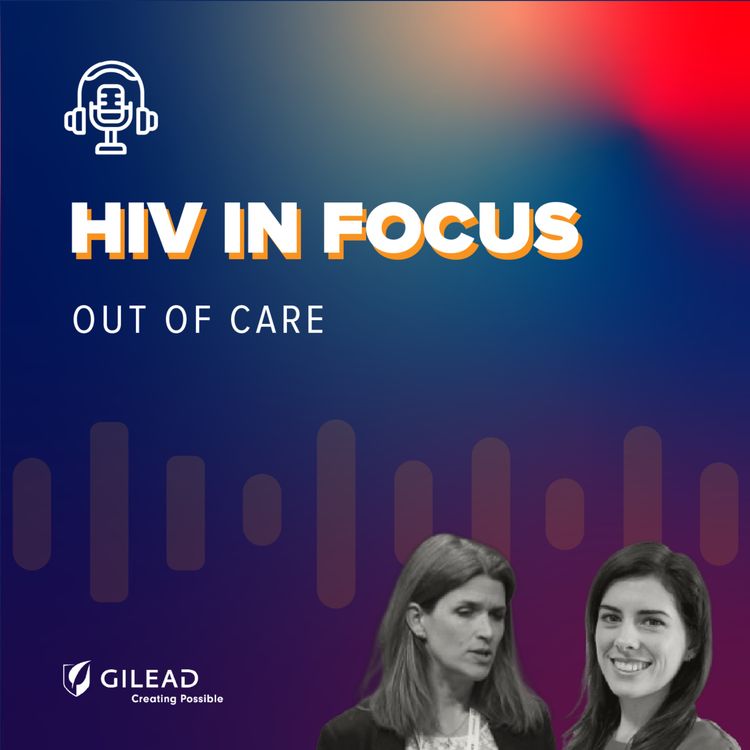
HIV in Focus
Out of Care
" If we want to end HIV by 2030, the people out of care are a really important group to address. And Primary Care teams are in one of the best positions to support these people. "
" People who are out of care often don't really want to be out of care. They found themselves in that situation. It's the same way I haven't been to the dentist for ages. It's something they know they should be doing, but they haven't quite got around to and they feel well. And they often feel quite guilty and ashamed about that as well. " " There are three main questions that you can ask, and these are not to be asked in a judgmental way. And it's just you being inquisitive because as I said, HIV is a chronic condition and you would ask these questions of any person with a chronic condition like diabetes or COPD"
Resources:
Elton John AIDS Foundation, Achievements of the Zero HIV Social Impact Bond
University of Liverpool HIV Drug Interactions website
Howarth et al. REACH study
HIV Prevention England, Practical guidance for Primary Care to optimise HIV testing and re-engagement of people living with HIV
Dr. Grace Bottoni is an HIV GP Champion, as well as a Hepatitis C Champion, working out of the borough of Lewisham in South East London. Her clinical interests include increasing testing in primary care and re-engaging patients living with HIV who are out of care, while reducing stigma in healthcare settings. Dr. Bottoni is also the local clinical lead for the Clinical Effectiveness Group in South East London. Reach out to Grace on LinkedIn with your questions.
Dr Kate Childs is an HIV consultant at Kings College Hospital, London and her clinical interests include re-engaging people living with HIV who are out of care, improving access to care, and HIV-associated liver disease. Dr. Childs is on the British HIV Association (BHIVA) co-infection guidelines writing group and was elected to the BHIVA Executive Committee as a trustee in 2023.
UK-UNB-4889
Jan 2024
More episodes
View all episodes
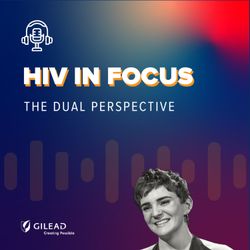
8. The Dual Perspective
36:05||Season 2, Ep. 8In The Dual Perspective, Dr. Naomi Sutton is joined by Aoife Commins, a registered nurse and HIV advocate based in Galway, Ireland, to speak about Aoife's unique experience of being both a healthcare professional and living proudly with HIV. Aoife shares her diagnosis story and the challenges she encountered along the way, including stigma and misinformation - even among healthcare professionals. Aoife and Naomi discuss the state of HIV education, while sharing some key tips and resources for listeners to combat stigma and improve the understanding of HIV outside of the specialty." I did everything right. I took every step. I got tested. We were using condoms. We decided to stop using condoms and I still caught it. You know, it can happen to literally anyone. You can do everything right and still catch it. So, we have to stop with this kind of whole moral hierarchy of HIV" " In society, we should not have to defend ourselves and advocate for ourselves in healthcare. It just shouldn't be the way it is. And it's very frustrating for people living with HIV."" And if somebody sat in front of you saying, please, could you test for HIV? Just do the test. "Aoife Commins is a Registered Nurse in Acute Medicine at University Hospital Galway, an HIV advocate and speaker dedicated to raising awareness about HIV, sexual health, and combating stigma based in Ireland. Follow Aoife on Instagram @aoifecommins.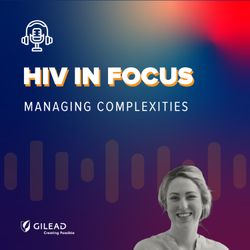
7. Managing Complexities
37:05||Season 2, Ep. 7In Managing Complexities, Dr. Naomi Sutton is joined by Dr. Lauren Walker to discuss a topic that is becoming more pertinent as people living with HIV live longer: multiple co-morbidities in an aging cohort. The goal has shifted from keeping people living with HIV alive to improving their quality of life as they age. Lauren walks listeners through the relationship between HIV and co-morbidities, the cumulative burden of small harms and the impact of polypharmacy on quality of life. Lauren and Naomi discuss where the responsibility of de-prescribing lies, and when clinicians should undertake medicines optimisation; as well as working towards a more ideal approach to managing co-morbidities in the presence of HIV. " The important point for GPs that are listening is around challenging diagnoses and making sure that actually, that diagnosis is still present, that the person is still dizzy or itchy, so therefore they still need it – because they may not. " " Decisions about medicine shouldn't only be made by the clinician in front of you. It should be a shared decision where we talk about risk and we talk about benefit and the potential harms of medicines and we decide together what's your priority and what do you want to do. " " And that's really important then that if there is medicine that you feel that this patient needs to manage their multiple long-term conditions, then by all means speak to the HIV team to say, is this safe?" Resources: Liverpool Combined Comorbidities Calculator, University of LiverpoolDr. Lauren Walker is Senior Clinical Lecturer in Clinical Pharmacology & Therapeutics and an Honorary Consultant in General Internal Medicine at the University of Liverpool. She is the Academic Director of the university’s NIHR Clinical Research Facility, and a co-Director of the Liverpool Early Phase Hub. Lauren’s research and clinical interests include improving the safe and effective real-world use of medicines in adults with complex multimorbidity & polypharmacy. Lauren also co-chairs a National Polypharmacy Services Consortium (PPSC).UK-UNB-5076Jan 2024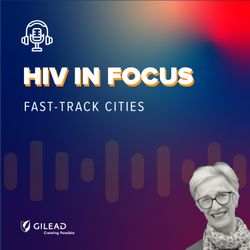
6. Fast-Track Cities
26:43||Season 2, Ep. 6Dr. Naomi Sutton is joined by Professor Jane Anderson to talk about Fast-Track Cities and their role in Getting to Zero, particularly in maximising the collaboration between funding bodies such as local government, existing health and care services, patient advocacy groups and charities to design and deliver interventions tailored to local populations. Jane takes Naomi and listeners through the history and accomplishments of Fast-Track Cities, and how to implement the principles of Fast-Track Cities and partnership working even if you don’t live in a city." Cities are places that have got huge populations. HIV is often an urban problem. And importantly, cities have got power over their health economies, over the lives of their citizens that can be used to really good effect, to ensure that cities fast-track their HIV responses "" People living with HIV are experiencing stigma and discrimination in their lives, and in particular, in some healthcare settings. And we know that internalised stigma is a real problem. So, without addressing that, we're not going to get to zero "" We are in a health and care system that's quite split and quite divided. So we need to make sure that we are together, and we also need to make sure that people living with HIV are front and centre of every initiative " Resources: Fast-Track Cities London, Evolving HIV Care Professor Jane Anderson is a Consultant Physician and Clinical Researcher in HIV Medicine at Homerton University Hospital and Barts Health in East London. Her interests include delivering joined-up, equitable, person-centred services for people living with HIV and their families. Jane is a past-chair of the British HIV Association, the current chair of the National AIDS Trust board, and co-chair of London’s Fast-Track Cities Leadership Group. Follow her work on Twitter/X @ProfJAnderson and @londonftciUK-UNB-5077Jan 2024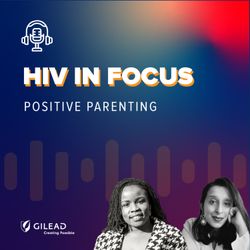
4. Positive Parenting
40:00||Season 2, Ep. 4For Positive Parenting, Dr. Shema Tariq returns to the podcast joined by Bakita Kasadha to debunk the myths and misinformation surrounding a joyous but potentially challenging period of life: becoming a parent. People with HIV routinely give birth to HIV-negative babies. However, they do not always have access to accurate advice or much needed post-natal support. Shema gives listeners a rundown of the latest infant feeding guidelines from the British HIV Association (BHIVA) and how clinicians can support parents living with HIV to feed their babies. Bakita talks through the Nourish-UK study findings, which looks at the experiences of birthing parents living with HIV and how they make decisions around feeding their babies. Post-natal support, particularly from peers, is crucial for birthing parents with HIV – a good place to start is reaching out to the 4M Mentor Mothers network for more information. " If a woman is on treatment, or if a birthing parent is on treatment, the risk of passing HIV onto a baby, something that we call vertical transmission, is between 1 in 500 and 1 in a 1000. […] That's the same as getting nine heads in a row if you toss a coin – so it's really, really unlikely." " It's important to work together rather than seeing it as a clinician is advocating for the safest option for the child. The parent probably wants what's best for their child, too. So it's important to approach the conversation in that way. " Resources:BHIVA Pregnancy GuidelinesPreventing Vertical Transmission, Terrence Higgins TrustNOURISH-UK Patient Information Leaflet4M Mentor Mothers Bakita Kasadha is an award-winning health researcher, health writer and poet who sits at the intersection of social science and HIV advocacy. Bakita is currently pursuing a DPhil at the University of Oxford interrogating the experiences of peer lived-experience researchers in academic health studies, and is a Co-Investigator on the Partnership for Black People’s Health study. She also chairs the board of Glitch and is a board member of the Fast-Track Cities Leadership Group. Follow Bakita on Twitter/X @BakitaKK or at her website: www.bakitakk.com Dr Shema Tariq is a Consultant HIV and Sexual Health Physician at Mortimer Market Centre, and Clinical Academic at University College London's Institute for Global Health. Her main clinical and research interest is the health and wellbeing of women living with HIV. She leads the PRIME Study - one of the largest studies internationally on HIV and menopause. Shema is also part of the GROWS team, developing information and peer support for older women living with HIV, and is a Trustee of Positively UK and Tommy's. She is also Chair of the Steering Group of 4M Network, a UK-wide Mentor Mother programme. Follow her work on Twitter/X @savoy__truffle and @prime_uclUK-UNB-4747Jan 2024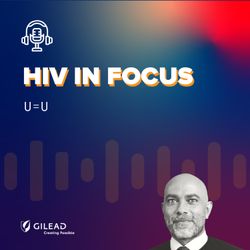
3. U=U
26:17||Season 2, Ep. 3In U=U, Dr. Michael Brady tells us about the life-changing message of U=U, or Undetectable = Untransmittable. He helps listeners understand viral loads, their impact on virus transmission, and the impact HIV treatment has on both. Michael and Naomi take a deep-dive into the decades of evidence and clinical studies supporting U=U, and what this means for people living with HIV. Michael emphasises the importance of passing on the message, particularly as healthcare professionals, in aiding people to continue treatment, get tested, fight stigma with the ambition of Getting to Zero. " So you know, I've heard people burst into tears when they've really got to understand and comprehend this message” “We can now say, you know, if you're taking treatment, you'll have a long and healthy life and a zero risk of transmitting the virus to others. And it's really shifting the population approach as well as the individual approach.” " A lot of what continues to drive the stigma around HIV, whether that's internally or externally, is the fear of transmission and the "I don't want to pass it on to anybody else. I don't want anyone else to have what I have." So to be able to tell people with confidence that that will never happen is hugely destigmatising. It completely takes away the fear and the shame around sex." Resources: Terrence Higgins Trust, Can’t Pass It On trainingPrevention Access U=U Resource Center Dr. Michael Brady is a Sexual Health and HIV Consultant at King's College Hospital, where he is also the Principal Investigator on the PARTNER, PROUD and PrEP Impact studies. Dr. Brady has clinical interests in HIV transmission, primary HIV infection, HIV testing and prevention strategies and PrEP; and supports work to keep national PrEP guidelines up-to-date. He is also the former Medical Director of the Terrence Higgins Trust – a post he held for 15 years – and the first National Adviser for LGBT Health. Follow along @drmbrady on Twitter/X. UK-UNB-4750Jan 2024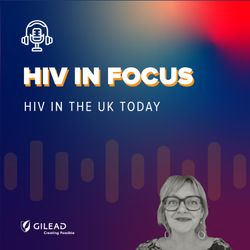
1. HIV in the UK Today
34:20||Season 2, Ep. 1HIV has changed. In HIV in the UK Today, Dr. Laura Waters gives listeners an introduction to HIV and its evolution from the epidemic in the 80s and 90s to the controllable, manageable condition it is today. Basics are covered: how HIV can be acquired, what a viral load is and how that impacts risk of transmission, and the life-changing message of U=U: undetectable equals untransmissable. Laura and Naomi discuss the UK’s progress of Getting to Zero, and how we can achieve zero new HIV transmissions in 2030 using an already existing toolkit: testing, effective treatment and prevention options. Finally, Laura takes listeners through the challenges and barriers to Getting to Zero: stigma and bias. Older, heterosexual people - a growing cohort in people living with HIV - are often overlooked for testing and are diagnosed dangerously late. Learn how to change the language you use to address stigma and make healthcare settings more accessible to the people who need it from the People First Charter, and educate your team on how HIV has changed."The whole Getting to Zero concept is the idea that we can achieve zero new HIV transmissions. If we get enough people tested, enough people on treatment and in care; therefore undetectable, but also by giving prevention options to people who are at risk of HIV.""And anyone who's had sex could have acquired HIV. So anyone who's had sex needs to have an HIV test at least once"Dr. Laura Waters is a HIV & Sexual Health Consultant at Mortimer Market Centre in London, Principal Investigator on a number of antiretroviral trials and formerly the chair of the British HIV Association (BHIVA). Laura chairs and holds a number of advisory roles across national HIV and Sexual Health groups and committees, and is a lecturer at the Institute of Global Health, University College London. A vocal advocate for patient voices and stigma-free access to care, she is also the founder of the People First Charter. Follow along on X/Twitter @drlaurajwaters and @peoplefirst_HIV.UK-UNB-4748Jan 2024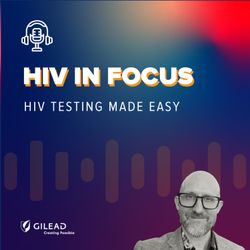
2. HIV Testing Made Easy
30:03||Season 2, Ep. 2In HIV Testing Made Easy, Dr Naomi Sutton welcomes Dr Tristan Barber to the studio to talk about the key role of HIV testing in Getting to Zero i.e. no new infections in the UK. Tristan walks listeners through what the tests measure, what a CD4 count is, how HIV affects the body's CD4 cells and the importance of diagnosing patients as early as possible. Recognising that funding may be a barrier to routinely testing everyone, particularly in areas of lower HIV prevalence, Tristan points out the latest BHIVA testing guidelines, including common indicator conditions that should act as triggers for offering an HIV test.Naomi and Tristan dig deep into stories of missed testing opportunities and the devastating impact a late diagnosis can have on some patients, and offer practical advice on how healthcare professionals can offer HIV tests - whether in the community or specialist care - without judgement, as part of routine, standard care."Everyone in the UK should know their HIV status. This should be part of standard healthcare. We need to give destigmatising, normalising messages about HIV testing. The fact is that living with HIV is a chronic, manageable condition. And it's much easier to manage if it's diagnosed at an early stage.""I also would encourage all healthcare providers to be able to offer HIV testing. This can be in a very standard, non-judgmental way. Find the language, say to people, 'we offer everyone testing for treatable blood borne infections including HIV, is that okay?' "Dr Tristan Barber is a Consultant in HIV Medicine at the Ian Charleson Day Care Centre, at the Royal Free Hospital in London where he leads an ageing/frailty service for people living with HIV. His research and clinical interests to date also include: HIV-related neurocognitive impairment, new antiretroviral treatments and implementation science. Tristan chairs the Education and Scientific subcommittee for the British HIV Association (BHIVA) as well as the Board of Trustees for Positively UK, and is an Honorary Associate Professor at the Institute for Global Health, University College London. Follow along on Twitter/X @tristanjbarber.UK-UNB-4749Jan 2024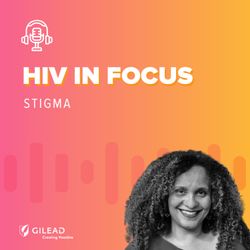
8. Stigma
31:15||Season 1, Ep. 8In the final episode of the series, Susan Cole and Dr Naomi Sutton tackle stigma faced by persons living with HIV (PLWH), the historical narratives of HIV and misinformation still negatively influencing how some clinicians and some of the public perceive HIV, and utilising the power of U=U against stigma and misinformation. Susan shares her own story of being diagnosed and living with HIV."One of the most powerful things in terms of dealing with stigma or perceived stigma is actually getting the U=U message out there.""‘Telling’ is definitely better, and I think that it really takes away some of the stigma, because when you talk about disclosing, it’s like a shameful negative thing that you're trying to say."Susan Cole is an award-winning HIV activist, broadcaster, writer and public speaker, who has advocated for people living with HIV for over two decades. She leads community engagement and broadcasting activities for NAM aidsmap, including producing and hosting aidsmapLIVE. Susan is also a member of the 4M network of Mentor Mothers, and a founding member of the Global HIV Collaborative. She was awarded 'Woman of the Year' at the 2020 NAZ OSCARS.Follow her on Twitter @susancolehaley.UK-UNB-2654Jan 2024